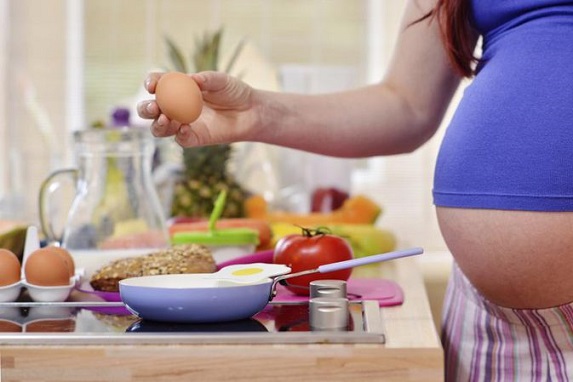Prenatal Vitamins
What Prenatal Vitamin Should I Take? Honest Reviews & What Moms Swear By
Prenatal Nutrition: A Closer Look at Caffeine and Green Tea

Navigating dietary choices during pregnancy is crucial.
While green tea is often celebrated for its health benefits and moderate caffeine consumption is considered acceptable, recent research highlights specific nuances that expectant mothers should understand.
The Complex Case of Green Tea
Green tea is rich in antioxidants known as catechins, the most potent of which is epigallocatechin gallate (EGCG). These compounds are linked to benefits like improved heart health and blood sugar regulation. However, during pregnancy, this very compound introduces a significant concern: it can interfere with folate absorption.
Folate (and its synthetic form, folic acid) is critically important in early pregnancy as it is essential for preventing neural tube defects in the developing fetus.
The Mechanism:
The issue arises because the EGCG molecule is structurally similar to a drug called methotrexate. Methotrexate works by binding to and inhibiting the enzyme dihydrofolate reductase (DHFR), a key enzyme in the folate pathway. This pathway is how the body converts folate into a usable form that supports rapid cell division and growth.
Research indicates that EGCG also binds to DHFR, albeit less powerfully than methotrexate. When it does, it can temporarily inactivate the enzyme, potentially impairing the body's ability to process folate.
The Bottom Line for Consumption:
The precise amount of green tea required to significantly impact folate levels is not definitively established. However, given the paramount importance of folate in the first trimester, many health experts advise erring on the side of caution. It is often recommended to limit green tea intake and avoid green tea extracts and supplements entirely due to their highly concentrated EGCG content.

Caffeine: Understanding Moderation
The consensus from major health organizations, including the American College of Obstetricians and Gynecologists (ACOG), is that moderate caffeine consumption (less than 200 mg per day) is generally not associated with an increased risk of miscarriage or preterm birth.
What the Research Shows:
Large-scale studies have effectively quantified the risks associated with higher levels of caffeine intake:
Low Birth Weight: A study from the Yale University School of Medicine found that very high caffeine intake (≥600 mg/day, or about 6 cups of coffee) was linked to a clinically significant reduction in birth weight. The effect was negligible at moderate levels of consumption.
Miscarriage/Stillbirth: A comprehensive Danish study of over 88,000 women found that consuming 8 or more cups of coffee per day (approximately 800 mg of caffeine) was associated with a 60% increased risk of fetal death compared to no caffeine intake. The study concluded that moderate consumption (1-3 cups of coffee daily) posed only a minimal (3%) increase in risk.
Practical Recommendations:
Limit intake to under 200 mg of caffeine per day. This is the guideline from ACOG and other major health bodies.
Account for all sources. Caffeine is found in coffee, tea, soda, energy drinks, and chocolate.
1 cup of coffee (8 oz): ~95 mg caffeine
1 cup of black tea (8 oz): ~47 mg caffeine
1 cup of green tea (8 oz): ~28 mg caffeine

During pregnancy, certain substances require careful consideration due to potential effects on fetal development.
Green tea contains EGCG, an antioxidant that may interfere with folate absorption by inhibiting the DHFR enzyme — which is essential for processing folate, a critical nutrient in early pregnancy. To mitigate risk, it’s advised to limit green tea consumption and avoid concentrated extracts. Emphasis should be placed on obtaining adequate folate through diet or supplements.
Caffeine, which readily crosses the placenta, has been associated with increased risks of restricted fetal growth and miscarriage when consumed in excess. It may cause blood vessel constriction and elevate fetal heart rate. Pregnant individuals are advised to keep daily caffeine intake below 200 mg, accounting for all sources including coffee, tea, soda, and chocolate.
Moderation and mindful consumption are key for both substances during pregnancy.
Conclusion:
A cautious approach is best. While enjoying a single cup of green tea occasionally is unlikely to cause harm, its potential interaction with folate suggests it should not be a primary beverage during pregnancy. For caffeine, sticking to the well-established limit of less than 200 mg per day from all sources is considered safe for most pregnant individuals. As always, consulting with a healthcare provider for personalized advice is essential.

Prenatal vitamins are vitamin supplements that a woman can take on a daily basis to ensure that she is obtaining appropriate quantities of essential nutrients during pregnancy. It is important for a woman to discuss with her medical practitioner which prenatal supplements, if any, she should take and which she should avoid. It is essential that all prenatal vitamins are only taken under the advisement of a medical professional. There are some prenatal vitamin supplements that can prove dangerous for a pregnant woman to take and she has to be especially cautious.

Taking a prenatal vitamin is even more important for women with dietary restrictions, health issues, or pregnancy complications
The most important point to consider when deciding which prenatal vitamin supplements to take is which one contains certain nutrients that are beneficial to the woman and her developing baby. The majority of adults do not need additional vitamins as they receive sufficient from a balanced diet but a pregnant woman often needs prenatal vitamin supplements, especially for folic acid and iron. However, it is essential that she ensures that the prenatal vitamins that she takes to provide one particular nutrient do not contain potentially harmful amounts of another. One of the most toxic types of prenatal vitamin that a pregnant woman has to be extremely cautious of is vitamin A.
For this reason the most suitable prenatal vitamins for pregnant women who require extra vitamin A are those which contain vitamin A in the form of beta-carotene. Beta-carotene is a nutrient that is found in fruits and vegetables and is converted into vitamin A in the body. Prenatal vitamin supplements that contain vitamin A from animal products can cause birth defects when taken in high doses during pregnancy but beta-carotene is a much safer prenatal vitamin as it is not toxic in high doses. It is essential that a woman discusses prenatal vitamin supplements with her health practitioner at her first prenatal check-up.
They can examine her current dietary requirements and assess whether prenatal vitamins are necessary to increase the amount of nutrients that she has available for her baby. Often a doctor will recommend that a pregnant woman takes a course of a folic acid vitamin supplement during the first trimester of her pregnancy. Folic acid is the most commonly prescribed prenatal supplement for the months prior to becoming pregnant as well and it is essential for the health and growth of the baby, especially the brain functions. Iron is another prenatal vitamin supplement that is recommended to prevent the mother suffering from anaemia due to the demands that the baby puts on her iron consumption.
Different Types Of Pregnancy Tests
Browse All Our Informative Topics
InternetBusinessIdeas-Viralmarketing Home Page
Tweet
Follow @Charlesfrize








